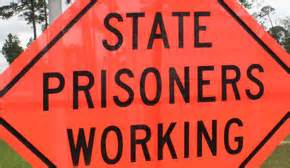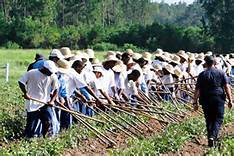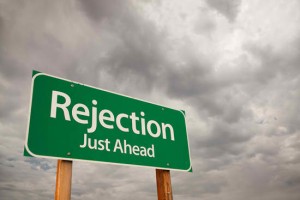judgment, shame and contempt
[for families with felons]
are felt most acutely.”
Michelle Alexander
Time for a pop quiz question. Ready? In what year did the U.S. end slavery?
Most agree it’s 1865. Some historians disagree. Their answer: 1942.
True, the Triangle Trade’s enrichment of slave shippers ended with the Civil War. Tragically, however, legally coerced work continued. Some southern states were sly. Police falsely imprisoned blacks, and judges ordered lengthy sentences at hard labor.
“Convict leasing” was legalized. Douglas Blackmon describes this practice as “a system in which armies of free men, guilty of no crimes and entitled by law to freedom, were compelled to labor without compensation, were repeatedly bought and sold, and were forced to do the bidding of white masters through the regular application of extraordinary physical coercion.”
The penal system became the new slavery.
Still, the answer to our black-history-month query may not be 1942. Ready for a shocker? Enslavement of blacks exists today.
The War on Drugs intensified in the 1980s. In just two decades, those jailed for drug offenses increased ninefold. The Director for National Drug Control Policy, retired General Barry McCaffrey, referred to this imprisonment system as a “drug gulag.”
Mass incarceration is aggressively focused on communities of color. Despite blacks and whites having similar drug usage rates, a 1999 Human Rights Watch report states, “Black men are admitted to state prison on drug charges at a rate that is 13.4 times greater than that of white men.” Indeed, black men imprisoned, on parole and probation now exceed all men enslaved in 1850.
Bondage for drug offenses is inflicted almost exclusively on black and brown men. Whites are usually ‘off the hook.’ Even when arrested, whites are more often given alternatives to jail. When jailed, whites’ average sentences are 16.3 percent shorter than blacks.
Enormous numbers of black bodies are placed in bondage, their prison labor extracted, for non-violent drug offenses. Isn’t this a new system of slavery? Isn’t this massive discrimination also subjecting prisoners’ families—parents, spouses and children—to excruciating emotional and financial bondage?
As a permanent undercaste, the black community also suffers wage slavery. Whites’ average household income is 68.5 percent higher than blacks—and the black unemployment rate is twice that of whites. This severely depressed income continually increases economic inequality: Average white families now have thirteen times the assets of average black families.
It gets worse: Black prisoners’ sentences continue after release.
Imagine leaving prison. Determined to lead a good life, you plan to go to college—but you’re barred from getting a federal loan. Or you need a job but, if a black man, only five percent of employers will even grant you an interview. You may be desperate for public housing assistance. You can’t get it. By law, you probably can’t receive any public benefits—including food stamps if your kids are hungry. With all these cruel barriers, what choices remain? Can we see why ex-cons often return to prison?
Again, this discrimination primarily decimates blacks.
So who should correct these many forms of racialized financial rape? Why not the white community which perpetrates and often benefits from black bondage?
The first step is education: More fact-packed articles detailing the destructive impacts of racism can be found at www.quoflections.org\race.
Second, share these injustices with friends and family.
Third, let’s seek legislation ending the War on Drugs (really, the War on Black Men). Let’s eradicate laws discriminating against ex-felons. Let’s legalize a living wage. Also, our nation has the wealthiest white community in history, primarily due to centuries of labor stolen or cheated from African Americans. In the name of justice, we who are white can advocate for long-overdue reparations to be invested in neglected black communities.
Oh, and our pop quiz answer: Even in 2016, slavery continues on a massive scale.
]]> “The worker deserves his [or her] wages.”
“The worker deserves his [or her] wages.”– Apostle Paul (1 Tim 5:18)
Let’s get real. Any adult working for $7.25 an hour is being exploited, and the $9.60 Rhode Island minimum beginning January 1, 2016 also falls far short of being just.
Ask any Haitian garment worker: Survival requires servitude—-even if paid a scandalous 64 cents an hour.
Slavery is forced labor which legally rescinds all freedoms. A poverty wage is wage slavery, legally allowing employers to pay wages which eliminate many freedoms: The freedom to obtain decent housing; the freedom to take a paid vacation or sick day; the freedom to spend time with children; the freedom to retire; and, for some families, even the freedom to eat every day of the month.
Of course, the minimum wage promotes at least one freedom: The freedom to work two or three jobs.
The Declaration of Independence speaks eloquently to the minimum wage, stating that the Creator endows us “with certain unalienable Rights, that among these are Life, Liberty and the pursuit of Happiness.”
How can a person experience Life when their work is punished with poverty? How can a person experience Liberty when unjust wages impose soul-crushing limitations? How can a person pursue Happiness with the drudgery of constant work? Are Life, Liberty and the pursuit of Happiness truly today’s “unalienable Rights”?
Living Wage Benefits Many
Two practical arguments win the day for a minimum wage which is a living wage. First, a raise stimulates the economy because minimum wage workers spend virtually all they receive. For example, with a raise to $10.10, the Economic Policy Institute estimates the boost in Gross Domestic Product would support the creation of 85,000 new jobs.
Second, a raise also decreases government spending to assist minimum-wage workers. Think corporate welfare. Government’s indirect subsidies to unethical businesses cease when a living wage is mandated.
The most pertinent argument for a living wage is moral. As the Apostle Paul wrote: “The worker deserves his [or her] wages.”
I recently heard a politician cynically argue we could raise the minimum wage to $50. This logical fallacy is absurd. Similarly, we could argue for a minimum wage of three dollars. Of course, the minimum wage should be the legally permissible minimum enabling a decent life.
Some opponents maintain the minimum wage is for training teenagers. To the contrary, the Department of Labor reports 88 percent are at least age 20. Moreover, even a single adult requires $11.86 an hour to escape poverty.
At least $12 an hour—and a benefits package which includes health insurance, vacation time, sick time and retirement pay—would provide a living wage. Indeed, the Institute for Policy Studies estimates that if the 1968 minimum wage was adjusted for income growth and inflation, workers would receive $21.16. The U.S. permits 34% of this wage.
Pols Opposing Minimum Wage
This prompts the question: Who is responsible for this repugnant impoverishment of workers? The answer is straightforward. While raises are frequently passed when Democrats are in charge, Republicans blocked all raises during the 16 years of the Ronald Reagan and George W. Bush administrations.
In what moral universe do these politicians live?
The jargon of plutocrats and pols tell the story: They cite ‘capitalism’ (meaning the choice of those with capital to fleece workers); they cite ‘the free market’ (meaning misers seek freedom from regulation so they can pay paltry wages); and they cite ‘supply and demand’ (meaning employees are priced the same as goods and services—-ignoring the requirements for Life).
Worshipping at the altar of unregulated capitalism justifies treating people as property. Isn’t this the very definition of slavery? What a crude and callous obscenity.
Want to make a difference? Encourage your RI Senator and Representative now to introduce a living wage bill this January. You can identify your state legislators at https://sos.ri.gov/vic. Oppose the moral outrage of today’s slave labor with a demand for wise and caring justice.
Rev. Harry Rix is a retired pastor and mental health counselor living in Providence, RI. He has 50 articles on spirituality and ethics, stunning photos, and 1200 inspiring quotations available at www.quoflections.org. ©2015 Harry Rix. All rights reserved.
]]>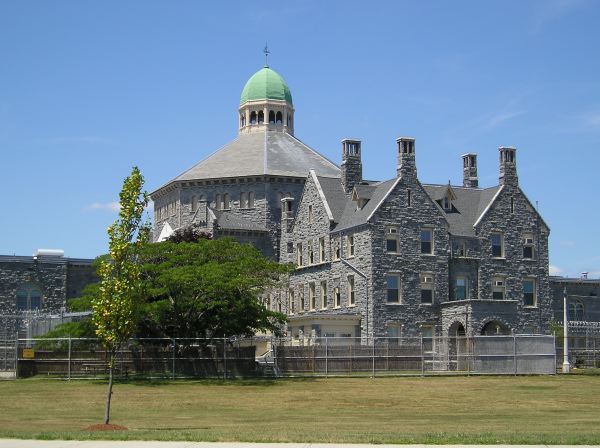 Slavery is the most extreme form of stratification. It relegates people to the status of property for the purpose of producing labor. The slave is a commodity. The slave trade was very profitable on an economic level and very damaging on others. Slavery is now prohibited by every nation in the world and is declared so in the Universal Declaration of Human Rights.
Slavery is the most extreme form of stratification. It relegates people to the status of property for the purpose of producing labor. The slave is a commodity. The slave trade was very profitable on an economic level and very damaging on others. Slavery is now prohibited by every nation in the world and is declared so in the Universal Declaration of Human Rights.
But is slavery dead, or has it been reborn in a new form? I believe slavery is still alive and is in fact thriving. Slavery has adapted to the times. Modern mental slavery imprisons the mind while the body appears free.
Now ask yourself how does one come to have a slave mentality? It runs deep. This country is built on slavery and all the policies keep minorities in an oppressive state. Here’s a little history on the slave trade and its wonders. It was the interest and business of a slave owner to study human nature. They were good at breaking men and making slaves. They all had different ideas and methods they used to keep the slaves more efficient and submissive to their every command.
The ultimate goal was to create a method or system that could keep the slaves basically enslaving themselves. Virginia in the year of 1712 had a British slave owner by the name of Willie Lynch, who created the system that would enslave African Americans for generations.
They compare the process of breaking a horse to making a slave. Cardinal principles were to break you from one form of life to another. Reduce them from their natural state in nature. The focus was on the female slaves and their offspring. Everyone knows mothers will do whatever it takes to protect their children. So you prey on that to break the will to resist.
In doing so they would get the toughest, meanest male slave, and viciously beat him in front of the other female slaves and their children, and then kill him to put fear in them. After witnessing something like this, what do you think the mothers will teach their children? The male children to be mentally weak and dependent, and the females to be independent. So take away the fathers and leave the female to raise and break the offspring in the early years of development with her natural protective nature.
Does any of this sound familiar?
What race has the most single-parent households with the mother all alone to raise young men and women? Single, independent black women. I know you heard that term before. Psychologically, the effect that slavery had on our culture runs deep. We went from overseers on a plantation, which was someone who harassed and watched over your every move, to officers in the streets. You see it every time you turn on the news.
- This post is published as part of the Prison Op/Ed Project, an occasional series authored by CCRI sociology students who are incarcerated at the Rhode Island Adult Correctional Institute. Read more here:
- ‘Prison Op/Ed Project’ teaches civic engagement, writing – Meghan Kallman
- Does racial injustice still exist? Look at our schools – Aaron Carpenter
- Rhode Island charges felons absurdly high court costs – Christopher Nemitz
- Public school students and inmates need more vocational training – Darnell Hie
- Prison policies put probation and vocational training at odds – Norman Johnson
- Corporate-modeled prison industrial complex doesn’t serve society – Adrian Rojas
I was watching the news the other day and there were covering some of the unjust and discrimination that African Americans endure. And the news reporter asked a young African American woman who was a mother what she would tell her son about the young African American teenager that was gunned down by a police officer for allegedly showing aggression. The young mother said she wouldn’t tell him anything; she said she would teach him that when he sees a police officer, take his hands out of his pockets, be polite even if the officer is not, and to comply with everything he says no matter what he says, because I just want my baby to come home. Motherly instinct at its best.
Some of you reading this are probably thinking no way. Slavery is morally inhumane and it’s been abolished in this country. It says to in the constitution, the 13th Amendment was the act to abolish and outlaw such a dehumanizing thing as slavery.
Read carefully the exact words of the oh-so-important 13th Amendment so you don’t misunderstand: “neither slavery nor involuntary servitude, except as a punishment for crime whereof the party shall have been duly convicted, shall exist within the United States, or any place subject to their jurisdiction.”
So in other words, according to this so-called punishment clause, if you get arrested, no matter how minor or major the offense, and get convicted, there’s nothing in that 13th amendment to ensure you can’t be enslaved by your state. This clause is being used to reinstate slavery under another guise.
No wonder America’s quick to criminalize everything and lock you up—it’s big business. They hole slave trade was based on economical gain. Now ask yourself, what groups of people come to jail the most? You guessed right if you said minorities and the lower class. Think about that.
If you owned a business, what would you do to keep it running? Keep your supply and demand up, right? If you owned a prison, you would keep your customers coming back. American locks up half a million more people than China, whose population is 5 times greater than that of the United States. Statistics show America holds 25% of the world’s prison population, and only 5% of the world’s people. What does that tell you?
The prison system is big business; it’s estimated that prisons make over $3 billion yearly and that number is growing. Statistics show that black men are incarcertated six times the rate of white men, and government studies also found that black men are at a higher chance to being searched, prosecuted, and convicted more than white men, and serve longer prison sentences.
Constant social injustice and inequalities have a major influence on black males’ psychological development and life course trajectories and transitions. Mass incarceration is a new way of reimposing the Jim Crow laws to segregate. By definition, slavery goes far beyond the actual removal of freedom; it denies the humanity of the enslaved.
Racially imbalanced enforcement also means that minorities are more likely to suffer consequences that outlast their prison sentences, like difficulty finding jobs and housing, lost access to government benefits and in some places disenfranchisement. The prison system makes so much money that it encourages racist practices in the American criminal justice system.
At the economical height of slavery there were approximately four million African American slaves. Today there is approximately six million African Americans in some form of incarceration or “correctional supervision”: prison, probation, or parole. That’s more people locked up than were slaves at its highest peak.
Or is it just slavery adapting to the times? The prison system is among the most profitable industries in the United States. Despite our nation’s self-perception as a bastion of freedom, we lock up more people than anyone else in the world. But we have songs about the “land of the free”. What an oxymoron.
What’s more important to you: schooling for higher education, or mass incarcerations? Like minds will say education, because our children are most important right? You see, there’s a question mark because if you were interested and cared about something like education, you would show it in every way possible by your actions and concerns, but that’s not the case. It seems as if mass incarceration is more important.
The money that states spend on prisons has risen six times the rates of spending on higher education. What does that tell you? It seems to me they’d rather put you in prison than through school. In urban communities, they cut all funding for after-school programs, recreation centers and other extra-curricular activities. What’s left for these kids to do to occupy their time? If kids are the heart and soul of this country and hope for the future, wouldn’t it be in our best interest to help them be all they can be? What do your schools look like? Are they clean? Are the books and curriculum and the teachers teaching up-to-date? Some of you reading this might think, “who has schools like that?”, while for others this is the norm.
In all actuality, this should shock and appall you that the environment we teach kids in is not up to Grade A standards. I speak for myself when I say the schools I’ve attended weren’t up to standard. In come from the inner city urban community, a predominantly black and Hispanic neighborhood. I remember going to school in the summer and it being hot and going to school in the winter and it being too cold. Try learning under those conditions, with outdated books they used to teach your parents that still says that Christopher Columbus discovered American. If you still believe that, chances are you went to one of those schools.
Schools have adopted this “zero tolerance” policy where anything they presume as deviant will kick you out of school or even worse, lock you up, depending on what you’ve done. My point is this: we’re failing to realize that we’re dealing with adolescent kids that are dealing with emotions or feelings they can’t describe or understand, so they’re confused and don’t know how to express themselves. So instead of a “zero tolerance” policy, how about a “try-to-understand” policy!
Don’t get me wrong, I know there are plenty of teachers that truly care and love their students, but they’re underpaid with not enough resources. I think America should stop trying to criminalize everything and try to find solutions instead of spending all of that money on the “war on drugs” that never seems to be ending, due to the success of mass incarceration and waging a “war on schools”. That to me seems like you’ll get better results from if you really cared about the children. With all this being said I ask one last question: is the system set up against us? Or is it slavery in a more modern form?
This post is published as part of the Prison Op/Ed Project, an occasional series authored by CCRI sociology students who are incarcerated at the Rhode Island Adult Correctional Institute. Read more here:
- ‘Prison Op/Ed Project’ teaches civic engagement, writing – Meghan Kallman
- Does racial injustice still exist? Look at our schools – Aaron Carpenter
- Rhode Island charges felons absurdly high court costs – Christopher Nemitz
- Public school students and inmates need more vocational training – Darnell Hie
- Prison policies put probation and vocational training at odds – Norman Johnson
- Corporate-modeled prison industrial complex doesn’t serve society – Adrian Rojas
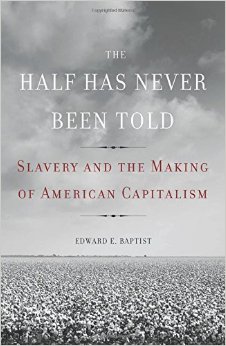 We all, every one of us, make up stories to justify our good fortune.
We all, every one of us, make up stories to justify our good fortune.
If we are lucky enough to have good health, a decent home and full bellies, we are quick to ascribe it all to our own efforts and slow to credit the largess of others or to the situational nature of our placement in the world. We love stories of hard work and sacrifice yielding great rewards and pretend to disdain inherited wealth and titles. We imagine, without evidence, that the world operates as a gigantic meritocracy, dolling out the proper amount of wealth and security to each according to their ability to earn it.
Our view of those who lead less wonderful lives is almost always tainted by a childish criticism of the person’s character. I say childish because I remember being child and learning about slavery in the United States. My first thought was, “I would never let anyone enslave me.”
As a child I was white and male and comfortably middle class. It was easy as a kid reading Marvel Comics and watching Star Trek reruns to believe that corrupt systems can be overthrown and bad people defeated. As a child, the world is black and white, and a child’s imagination, as wonderful and creative as it might be, lacks the ability to understand the soul crushing effects of psychological, emotional, sexual and physical torture that perpetuates an engine like slavery.
(I am reading an excellent book on this subject, The Half Has Never Been Told: Slavery and the Making of American Capitalism by Edward E Baptist that brings to light the cruelty of slavery through the lens of “unfettered” capitalism.)

These are the thoughts I had when thinking about my first night volunteering for Registry Week, the first step in the Zero:16 campaign to end veteran and chronic homelessness in Rhode Island by 2016. Last night I sat across a table at Crossroads, a homeless shelter in Providence, and interviewed around a half dozen people who are currently homeless.
The questions I asked were extremely personal at times, delving into physical and mental health, interactions with law enforcement and financial issues. Everyone had the right, even after consenting to the interview, to not answer any of the questions, but everyone answered every question. Some of the stories I heard were heartbreaking. The people I interviewed are not bad or possessed of some life defining moral failing. They are simply the winners of a lottery none of us wants to enter.
Certainly some of the people I talked to have issues with alcohol or the law, and some of the people I talked to don’t manage their finances properly or plan for the future, but these are not crimes. We all have friends and family with addiction issues and not all of us are smart with our money, but only some of us are homeless.
Homelessness is the end result of a number of unfortunate life circumstances. Most of us deal with these issues one at a time, some of us deal with two or three at a time. Most of us have family and fiends we can count on when things go wrong. It’s not our wonderful natures that immunize us from the terrors of the world, it’s the luck of the draw.
But the childish among us want to pretend that rewards and punishments are doled out fairly. Some of us made the right choices, went to the right schools, angled for the right job, avoided all the pitfalls and scored big. But deep down, we all know differently. That’s why some cities and towns (including, apparently, downtown Providence in Kennedy Plaza) outlaw feeding the homeless. Some people don’t want to see the victims of the game they are winning. It’s out of sight, out of mind, a willing dismissal of the object permanence we learned at nine months old or a cultivated cognitive dissonance.
Those of us who are not homeless might work hard and do all the right things, but when it comes time to account for our fortune the number one determinant is luck.
We are lucky.
That’s it.
]]>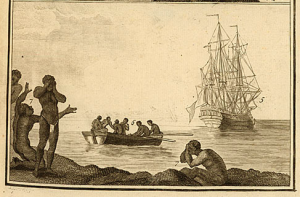 His name was John Harding. It must have been tough for a little white boy growing up in Newport, Rhode Island in 1805. Perhaps his mother and the other crewmen called him “Little John.” After all, he was only 4ft, 3 1/2 in. when he enlisted as a seaman on board a Rhode Island-based slave ship called Charles and Harriot. Little John was 11 years old.
His name was John Harding. It must have been tough for a little white boy growing up in Newport, Rhode Island in 1805. Perhaps his mother and the other crewmen called him “Little John.” After all, he was only 4ft, 3 1/2 in. when he enlisted as a seaman on board a Rhode Island-based slave ship called Charles and Harriot. Little John was 11 years old.
The vessel was bound for what is to today the southeast African nation of Mozambique. Upon arrival Little John’s menial duties as a seaman expanded to that of a jailer of captive Africans. Indeed, all crew on board slave ships where jailers of a sort. How trying it must have been for Little John to maintain vigilant surveillance over a desperate human cargo after the long weeks at sea.
I wonder what Little John thought as he gazed into the lamenting eyes of captive Africans, as their shackled feet pressed their way onto the blood-stained sailing vessel of death. One can only imagine Little John fears as he beheld those humans — some of whom were his same age. “Will they kill me? Will I return home to my mother and father and brothers and sisters?” he must have speculated to himself.”
And even still I wonder what Africans thought when they witnessed Little John, a mere child given charge to be the eyes and ears securing their captivity. As the beautiful African souls plotted their revolt, surely they imagined that Little John would have to be the first to die. He was the smallest, and thus, most vulnerable. “Yeah, we will change his fate and thereby change our ownt!” they thought to themselves.
Alas, it was not to be so. For Little John completed his first voyage as a seaman aboard this Rhode Island slave ship. The following year (1806) Little John returned to the seas where he celebrated his 12th birthday on board another “slaver.” And no doubt the Africans who boarded this floating prison would attempt to make sure Little John never sailed again.
My semi-fictional narrative based on true events from the book The Notorious Triangle: Rhode Island and the African Slave Trade, 1700-1807, by Jay Coughtry
]]>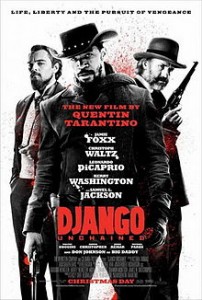 Soon Black History Month (Feb) will be here, and if the past is truly prologue, we should expect the typical, mediocre and depoliticized historical trivia that gets passed off as “Black History.”
Soon Black History Month (Feb) will be here, and if the past is truly prologue, we should expect the typical, mediocre and depoliticized historical trivia that gets passed off as “Black History.”
However, I intend to combat this with historical commentary, that occasions a more relevant way in which to engage Africana history, philosophy, and political thought both on the Continent and throughout the Diaspora.
With the release of Django Unchained we see one of the few moments in U.S. cinematographic history where southern plantation slavery is thrust upon the big screen as a context for the material and social violence that is so traditionally American. If the American south is the conventional home of all-things white supremacy, then certainly the American north — particularly Rhode Island — must have been its principal financier.
 W. E. B. Du Bois, the venerable American historian, sociologist, Pan-Africanist, and first African American to earn a doctorate from Harvard, chronicled Rhode Island’s centralized position as a primary trader in African people in his doctoral dissertation The Suppression of the African Slave Trade.
W. E. B. Du Bois, the venerable American historian, sociologist, Pan-Africanist, and first African American to earn a doctorate from Harvard, chronicled Rhode Island’s centralized position as a primary trader in African people in his doctoral dissertation The Suppression of the African Slave Trade.
Rhode Island became the greatest slave-trader in America. Although she did not import many slaves for her own use, she became the clearing-house for the trade of other colonies.
Du Bois would go on to quote Rev. Samuel Hopkins, a theologian who preached at the First Congregational Church in Newport, Rhode Island for over three decades:
The inhabitants of Rhode Island, especially those of Newport, have had by far the greater share in this traffic, of all these United States. This trade in human species has been the first wheel of commerce in Newport, on which every other movement in business has chiefly depended. That town has been built up, and flourished in times past, at the expense of the blood, the liberty, and happiness of the poor Africans; and the inhabitants have lived on this, and by it have gotten most of the their wealth and riches. (1787)
Years later scholar Jay Coughtry, in his ground-breaking work on the Rhode Island slave trade, The Notorious Triangle: Rhode Island and the African Slave Trade, 1700-1807, informs us that…
Throughout the eighteenth century, Rhode Island merchants controlled between 60 and 90 percent of the American trade in African slaves. … in no other colony or state did the slave trade play as significant a role in the total economy.
I am less interested in film review styled critiques of Tarantino’s movie (which I think people should see). Perhaps it would be more useful to use moments such as his film occasions to break with the ways in which America’s “peculiar institution” — racialized chattel slavery — is re-imagined as a unique and centralized southern phenomena. While singularly viewing slavery in the context of a southern plantation affords ways to understand some of the base physical, social and religious horrors of white supremacy, it elides its fundamental financial elements. Black flesh was transformed into literal commerce, and no one understood this better than Rhode Islanders.
After a brief lull during the Revolutionary War Rhode Island, as a new state, recommenced its trade in humans; and this time one clan would lead the way. Coughtry’s thorough examination of official shipping records from the Works Projects Administration for Bristol, Rhode Island revealed that a single family — the D’Wolfs…
…had the largest interest in the African slave trade of any American family before or after the Revolution…
Northerners have historically laid the moral responsibility of this nation’s “original sin” at the feet of wealthy southern political actors. However, the fascinating irony is that Django should have been obliged to seek retribution in locations like Newport and Bristol, rather than Mississippi and Tennessee.
Malcolm X was right. The southern part of the United States begins at the Canadian border.
The antebellum era south, unfettered by the U.S. Constitution, through its slave system and social codes securely presided over the lives of African people. The notion of a Black political voice existed only in the minds of those enslaved, emancipated, and escaped who determined to imagine political freedom within the nation. Conceding that the scale of plantation slavery in northern locales was moderate by comparison to the south, the white political control was no less thorough. Indeed, prominent New England families like the Browns and De Wolf’s, both from Rhode Island, were elite financiers in the transatlantic trade in human beings. Because money and politics always go together in an American political rubric, access to the ballot stands as both a gateway and barrier. During the lead up to the Civil War political elites in states like Rhode Island and New York effectively negated any designs black males had on the franchise:
In 1822 Rhode Island denied that black men were eligible to vote in its elections . . . In New York an 1821 state constitutional convention raised the property qualification for black voters while eliminating it for white voters. This denied the right to vote to nearly all of the ten thousand black men who had previously voted in the state.[1]
An 1838 political convention in Pennsylvania sketched out modifications to the state’s constitution which secured the enfranchisement of “all white males and disfranchised all black males.”[2] Discontent with this repressive maneuver, black Pennsylvanians for the next two decades sought to have it overturned as they “petitioned Congress to help them gain equal access to the polls. But their efforts failed.”[3]
After the Civil War three Reconstruction Amendments to the U.S. Constitution were ratified. The Thirteenth, Fourteenth, and Fifteenth emerge out of a particular moment in which ruling class elites are forced to host a conversation on the sociopolitical status of those once kept as line items on asset statements. New civic, social and political definitions would be required to Constitutionally (re)classify the formerly enslaved.
If Blacks were no longer property then were they somehow humans? If they were humans living among whites within the nascent State then were they citizens also? If they were citizens without the Constitutionally protected right of suffrage then what does citizenship mean? These were among the most important questions the U.S. government had to take up.
The thought that Blacks would be franchised and economically empowered congruent with white, propertied, and literate males was anathema to the Eurocentric ruling class establishment. What followed was a myriad of social, political, and outright violent measures designed to not only prevent Black males from voting but render them less inclined to even try. By now we all know the historical constellation erected to frustrate Black’s attempts at voting: literacy tests, the grandfather clause, poll taxes, voter intimidation and coercion, property qualifications, etc.
Today, blatant attempts to violate the Fifteenth and Nineteenth Amendments where People of Color are concerned would almost certainly be universally decried. With the election of Barack Obama this current episode of African American voter disfranchisement was obliged to revise its pro-American political diction. It needed to appear as though it was protecting the sanctity of the constitutional right of the very people it would ultimately assail. Enter the Republicans.
In 2010 Congress saw a majority of Republicans take state house seats nation wide. That single election cycle increased by twelve the number of states with Republican majorities in their legislatures. One of their first collective political initiatives ensured that the exercise of the Fifteenth and Nineteenth Amendments would be measurably more difficult where voters of Color were concerned. With but a single exception Republicans introduced rigid voter ID bills which carried with them the effect of disfranchising significant numbers of Black and Latino voters and thereby negating important gains achieved after over a century of political struggle.
A recently release report by the Brennan Center for Justice titled Voting Law Changes in 2012 states that “Legislatures introduced and passed a record number of bills restricting the access to voting this year.” Republican advocates of the new laws have routinely argued that the passage of the legislation would significantly eliminate voter fraud. Aside from the fact that voter fraud nation wide has been at inconsequentially low levels, Democratic objections, according to the Brennan report, emphasize that,
. . . the new laws will make it much more difficult for eligible citizens to vote and to ensure that their votes are counted. In particular, they have pointed out that many of these laws will disproportionately impact low-income and minority citizens, renters, and students — eligible voters who already face the biggest hurdles to voting.
The report goes on to mention that nationally, eleven percent of all registered voters possess no photo ID. But even more significant percentages of minority voters, young and senior citizens alike, lack either state or college issued photo IDs. In some instances state legislatures have moved to actually eliminate legal provisions that once allowed student photo IDs as a legitimate form of identification. And it is precisely this minority population that Republican lawmakers have targeted in order to reduce voter turnout because they vote heavily the Democratic ticket.
If Democratic Representative John Lewis has said that “this year’s Republican-backed wave of voting restrictions has demonstrated that the fundamental right to vote is still subject to partisan manipulation.”[4] Marcia Fudge, a Congresswoman from Ohio voices it more directly: “these efforts have and all-too familiar stench of the Jim Crow era.”[5]
For example, in Colorado the new Republican Secretary of State, Scott Gessler, ordered that “inactive” (though registered) voters in predominantly Democratic districts not be mailed ballots even though they normally receive them — potentially disenfranchising nearly 73,000 registered voters in just two Colorado counties alone. Denver and Pueblo County Clerks Debra Johnson and Gilbert Ortiz have vowed to mail the ballots anyway, in defiance of Gessler. “The City and County of Denver has consistently provided all eligible voters with ease of access to the voting franchise and we plan to continue to do so . . .” said Johnson, preferring to battle Gessler in court, if necessary.
Republican controlled legislatures in no less than seven states have also moved to place strict, if not effectively inhibiting, regulations on organizations which coordinate voter registration drives. The Brennan report mentions that in one Florida county the League of Women Voters along with other voter registration organizations accounted for 62.7% of new voter registrants. Increases in African American voter participation have historically been the direct result of community-based voter registration drives. “African-American and Hispanic citizens in Florida are more than twice as likely to register to vote through such drives as white voters” cites the report.
Moreover, both Florida and Ohio have critically curbed early voting on Sundays (Ohio has eliminated it outright). Clearly, this political scheme is directed at African American citizens who, in disproportion to their white counterparts, tend to head to the ballot box on Sundays after church and when they are less likely to be at work or in school.
These are but a few examples of what amounts to African American voter suppression in an Obamasonian “colorblind” era. Like the malevolent poll taxes and literacy test of old, these forms of political management by the Republican establishment function as proxies for Jim Crow style racial management. Our political enemy has spoken. How will we respond?
Endnotes:
[1]Hine, Darlene Clark, William C. Hine, and Stanley Harrold. African Americans: a concise history. Alexandria, VA: Prentice Hall, 2004.
[2-3] Ibid.
[4-5] Brennan Voting Law Changes Report
